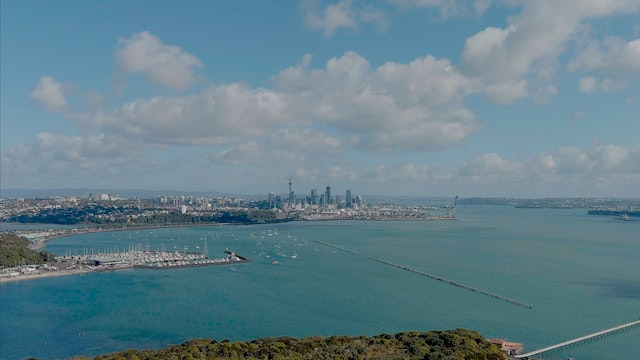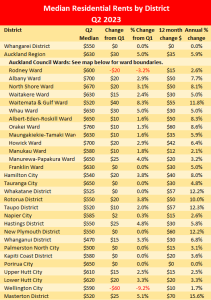
Auckland’s housing market is in a precarious state, as property prices have shown signs of deterioration in 76 suburbs over the past three months, just as the traditionally busy spring season arrives. This decline is a disheartening development for homeowners, who had recently glimpsed signs of recovery. However, prospective buyers now face the double whammy of escalating prices and soaring interest rates. This analytical article delves into the factors responsible for Auckland’s housing market woes and explores the broader implications of this downturn for New Zealand’s real estate landscape.
A Lingering Slump
New Zealand’s median house price took a significant nosedive, losing over $150,000 in value during a 15-month slump following the market’s peak in November 2021. Data from the Real Estate Institute reveals that prices reached an all-time high of $925,000, only to plummet by 18% to $762,000 in February of this year. The median price now stands at $767,000. Auckland, mirroring the national trend, witnessed a dramatic price decrease, falling from $1.3 million in November 2021 to $943,000 in January 2022 before limping back to $1.01 million.
CoreLogic’s latest data presents a grim picture, showing that a robust recovery remains elusive, despite the earlier glimmers of hope. Prominent Auckland suburbs such as Birkdale, Stonefields, Howick, and Ōtara have experienced price increases of just 2% since June 1. Even luxury suburbs like Herne Bay, Parnell, and Ponsonby have witnessed feeble price hikes of at least 1.7% over the past quarter. The housing downturn is universal, affecting a broad spectrum of suburbs, encompassing both the higher and lower ends of the market.
A Nationwide Crisis
Regrettably, this housing market crisis is not confined to Auckland. CoreLogic’s data illustrates that in the past three months, prices have waned in 269 out of 924 suburbs across New Zealand. A comparison between June and September shows a distressing increase in the number of suburbs facing price declines. In June, 71 suburbs had recorded a modest rise of at least 0.5% in the previous three months. However, by September, that number has escalated to 188, underscoring the breadth of the crisis.
Factors Driving the Descent
The housing market’s gloomy state is shaped by several distressing factors. Interest rates, though unlikely to rise further, have already climbed to staggering heights. Migration into New Zealand has surged, increasing the demand for housing. As a result, population growth is now outstripping supply, which spells disaster for affordability. Any potential rate reductions by the Reserve Bank in the coming year could offer a glimmer of hope, but the path to recovery remains uncertain.
While current homeowners might be somewhat relieved to see a partial rebound in prices, affordability issues loom large. High housing costs continue to eat into take-home pay, exacerbating inequality and poverty.
The Final Word
Auckland’s housing market is caught in a precarious situation, facing a protracted downturn, exacerbated by rising prices and soaring interest rates. Government policies, economic conditions, and the complex web of stakeholders will play a crucial role in determining the market’s future trajectory. The current state of the market, on the precipice of a national election, adds an extra layer of uncertainty, with the implications of the downturn becoming increasingly evident in the months ahead. For now, the market remains characterized by instability in interest rates, muted listing inquiries, and dwindling seller confidence. The ongoing affordability crisis underscores the dire circumstances in Auckland and New Zealand’s housing markets.




